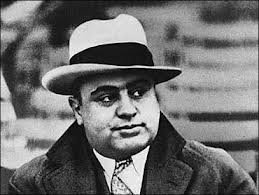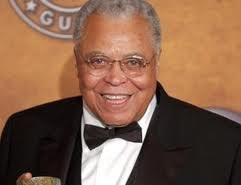Thomas Woodrow Wilson (December 28, 1856 – February 3, 1924) was an American politician and academic who served as the 28th president of the United States from 1913 to 1921. A member of the Democratic Party, Wilson served as the president of Princeton University and as the governor of New Jersey before winning the 1912 presidential election. As president, Wilson changed the nation's economic policies and led the United States into World War I in 1917. He was the leading architect of the League of Nations, and his progressive stance on foreign policy came to be known as Wilsonianism.
Born in Staunton, Virginia, Wilson grew up in the Southern United States, mainly in Augusta, Georgia, during the American Civil War and Reconstruction era. After earning a Doctor of Philosophy (Ph.D.) in history and political science from Johns Hopkins University, Wilson taught at various colleges before becoming the president of Princeton University and a spokesman for progressivism in higher education. As governor of New Jersey from 1911 to 1913, Wilson broke with party bosses and won the passage of several progressive reforms. To win the presidential nomination he mobilized progressives and Southerners to his cause at the 1912 Democratic National Convention. Wilson defeated incumbent Republican William Howard Taft and third-party nominee Theodore Roosevelt to easily win the 1912 United States presidential election, becoming the first Southerner to do so since 1848. During his first year as president, Wilson authorized the widespread imposition of segregation inside the federal bureaucracy. He ousted many African Americans from federal posts and his opposition to women's suffrage drew protests. His first term was largely devoted to pursuing passage of his progressive New Freedom domestic agenda. His first major priority was the Revenue Act of 1913, which lowered tariffs and began the modern income tax. Wilson also negotiated the passage of the Federal Reserve Act, which created the Federal Reserve System. Two major laws, the Federal Trade Commission Act and the Clayton Antitrust Act, were enacted to promote business competition and combat extreme corporate power.
At the outbreak of World War I in 1914, the U.S. declared neutrality as Wilson tried to negotiate a peace between the Allied and Central Powers. He narrowly won re-election in the 1916 United States presidential election, boasting how he kept the nation out of wars in Europe and Mexico. In April 1917, Wilson asked Congress for a declaration of war against Germany in response to its policy of unrestricted submarine warfare that sank American merchant ships. Wilson nominally presided over war-time mobilization and left military matters to the generals. He instead concentrated on diplomacy, issuing the Fourteen Points that the Allies and Germany accepted as a basis for post-war peace. He wanted the off-year elections of 1918 to be a referendum endorsing his policies, but instead the Republicans took control of Congress. After the Allied victory in November 1918, Wilson went to Paris where he and the British and French leaders dominated the Paris Peace Conference. Wilson successfully advocated for the establishment of a multinational organization, the League of Nations. It was incorporated into the Treaty of Versailles that he signed. Wilson had refused to bring any leading Republican into the Paris talks, and back home he rejected a Republican compromise that would have allowed the Senate to ratify the Versailles Treaty and join the League.
Wilson had intended to seek a third term in office but suffered a severe stroke in October 1919 that left him incapacitated. His wife and his physician controlled Wilson, and no significant decisions were made. Meanwhile, his policies alienated German- and Irish-American Democrats and the Republicans won a landslide in the 1920 presidential election. Scholars have generally ranked Wilson in the upper tier of U.S. presidents, although he has been criticized for supporting racial segregation. His liberalism nevertheless lives on as a major factor in American foreign policy, and his vision of ethnic self-determination resonated globally.
Early life and education
Wilson, c. mid-1870sThomas Woodrow Wilson was born to a family of Scots-Irish and Scottish descent in Staunton, Virginia. He was the third of four children and the first son of Joseph Ruggles Wilson and Jessie Janet Woodrow. Wilson's paternal grandparents had immigrated to the United States from Strabane, County Tyrone, Ireland, in 1807, and settled in Steubenville, Ohio. Wilson's paternal grandfather James Wilson published a pro-tariff and anti-slavery newspaper, The Western Herald and Gazette.[2] Wilson's maternal grandfather, Reverend Thomas Woodrow, moved from Paisley, Renfrewshire, Scotland, to Carlisle, Cumbria, England, before migrating to Chillicothe, Ohio, in the late 1830s. Joseph met Jessie while she was attending a girl's academy in Steubenville, and the two married on June 7, 1849. Soon after the wedding, Joseph was ordained as a Presbyterian pastor and assigned to serve in Staunton. His son Woodrow was born in the Manse, a house in the Staunton First Presbyterian Church where Joseph served. Before he was two years old, the family moved to Augusta, Georgia.
The high school I went to was named after President Wilson. It was Woodrow Wilson High.
If you want to read a lot more, go here: https://en.wikipedia.org/wiki/Woodrow_Wilson
- SERVES
- 6
- COOK TIME
- 30 Min
Turn your kitchen into an Italian restaurant with our easy version of the classic Rigatoni Bolognese. This hearty meat sauce packed with flavorful veggies over rigatoni pasta will do you proud!
- 1 pound ground beef
- 1/4 teaspoon salt
- 1/2 teaspoon black pepper
- 2 carrots, shredded
- 1 onion, chopped
- 1 green bell pepper, chopped
- 1 tablespoon chopped garlic
- 2 (15-ounce) cans tomato sauce
- 1 teaspoon dried oregano
- 1/2 pound rigatoni pasta
- 2 tablespoons slivered fresh basil
- In a large pot over medium-high heat, brown beef with salt and pepper. Drain off excess liquid then add carrot, onion, green pepper, and garlic. Cook 4 to 5 minutes, or until vegetables are tender, stirring occasionally.
- Add tomato sauce and oregano, loosely cover, and reduce heat to low. Simmer 20 minutes, stirring occasionally.
- Meanwhile, cook pasta according to package directions; drain and place in a large serving bowl.
- Stir basil into sauce and pour over pasta, toss to coat, and serve immediately.
On National Classy Day, we celebrate those who are graced with the ability to live their lives with class, passion, and who are driven to share it with others. On January 17th, honor those class acts and commemorate the birth of one of the most legendary comedians ever to walk the Earth.
Classy people draw others to them. They have a grace and knack for bringing light into a room with humor, beauty, or inspiration. For example, American comedian, Betty White, was graced with a seemingly unlimited ability to make us laugh. Her humor transcended age, gender, and race, and her vibrant energy was contagious. Knowing her or someone like her is an unforgettable experience that lives far beyond a single moment.
“Everybody needs a passion. That’s what keeps life interesting. If you live without passion, you can go through life without leaving any footprints.”
Betty White in her book If You Ask Me (And Of Course You Won’t)
We are not all graced with the same qualities as Betty White’s immaculate timing or delightful humility. However, we are all given traits that make us unique. We can exercise those abilities to the benefit of everyone around us. Other iconic women who shared their finer qualities with the world include:
- Jacqueline Kennedy Onassis
- Barbara Pierce Bush
- Sacagawea
- Diana Princess of Wales
- Julia Child
- Eleanor Roosevelt
- Rosa Parks
- Nelly Bly
- Bessie Coleman
HOW TO OBSERVE
On National Classy Day, reflect on those who’ve graced the world with their best qualities and made it a better place. Who would you recognize on January 17th? There are other ways to celebrate the day, too!
- Bring joy, laughter, or a smile to someone. Share a funny story, pun or joke.
- Remind someone of their goodness by complimenting them on a talent, skill, or accomplishment.
- Encourage someone to strive for their goals.
- Look for the positive in your day.
- Give someone a little grace. We all have bad days and a little kindness goes a long way.
NATIONAL CLASSY DAY HISTORY
On December 31, 2021, actress, comedian, and producer Betty Marion White Ludden passed away at 99. Born on January 17, 1922, White’s enduring career was so legendary that in 2018, Guinness World Records named her the female entertainer with the longest career. White was first cast in a radio broadcast in 1939 at the age of 17, and her career spanned 82 years. And for her entire career, White displayed grace and charisma that touched the world. She starred in numerous television shows and movies, including The Mary Tyler Moore Show, The Golden Girls, Hot in Cleveland, and many more, all of which showcased her quick wit and grace.
The Registrar at National Day Calendar proclaimed National Classy Day on January 1, 2022, in honor of Betty White and all the women who bring their grace and gifts to their communities and the larger worl


.jpg)











